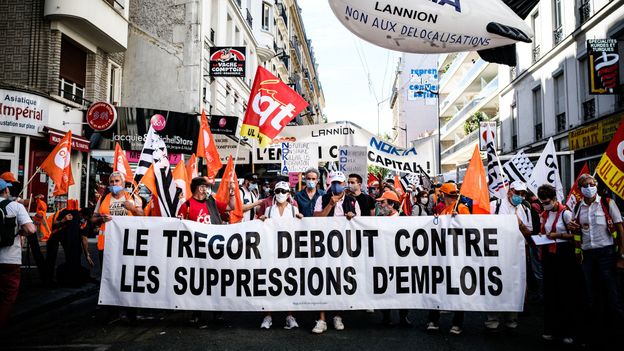
Lower inflation is usually a good thing for people who hold onto their jobs in a recession. It increases their purchasing power. Inflation is currently 0.65% (dipping as low as 0.12% in May) in the US and 0.8% in the UK, much lower than in recent years, but this could change should the governments’ stimulus packages cause supply shocks.
Supply shocks, by contrast, happen when people still have money to spend but cannot do so, because shops are closed or prices have rocketed up. For example, when oil prices go up, the cost to produce products manufactured with oil increases, and those costs are passed onto the customer.
Because the current recession is such a complicated mix of supply and demand shocks brought about by furloughing and suspending work in certain sectors, but not in others, it’s harder to predict how government interventions will work based on previous recessions.
“This is why people were debating whether expansionary policy would be good or not,” says Guerrieri. “There are some sectors where the virus has hit very heavily. You can increase demand but it will not give more incentive for waiters to go to work or increase the likelihood of customers going to a restaurant.”
Where are the opportunities?
Hardened by the effects of the last recession, central banks around the world have committed to stimulus plans worth a total of $4tn (£3.07tn) in the form of injections of liquidity and “quantitative easing”, as well as lowering interest rates. Germany’s central bank has committed 20% of GDP, the UK 15%, the US 10% and Spain 8%.
Bentham, a heterodox economist who considers herself someone who questions the mainstream and looks for more socially focused answers, says that now is the time to fix parts of the economy we don’t like as part of the recovery. “As a woman, things like childcare, caring for sick relatives and lack of funding for social services is a massive drag on the productivity of women. We could reimagine what investment is by building the recovery around services that will improve the productivity of neglected people.”
"bad" - Google News
August 11, 2020 at 07:31AM
https://ift.tt/2DvDRrj
Is there such a thing as a 'good' or 'bad' recession? - BBC News
"bad" - Google News
https://ift.tt/2SpwJRn
https://ift.tt/2z7gkKJ

No comments:
Post a Comment